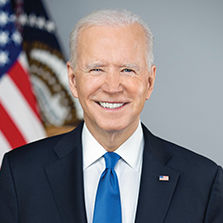
President Joe Biden and his administration have been busy.
Busy approving legislation that supports sustainable travel efforts. He also
helped to avert a railroad workers strike—twice.
The president's infrastructure bill, which passed in
November 2021, provides $5 billion over five years to help create a national network
of 500,000 electric vehicle charging stations along designated "alternative
fuel corridors," particularly along the Interstate Highway System. An
additional $2.5 billion will be available in competitive grants to support
community and corridor charging, improve local air quality and increase EV
charging access in underserved and overburdened communities, according to the
White House.
Further, Biden signed an executive order that sets a new
target to make half of all new vehicles sold in 2030 zero-emissions vehicles,
including battery electric, plug-in hybrid electric or fuel-cell EVs.
Since then, car rental companies have stepped up their
investments in EVs. To date, Hertz has been the most public in its news of EV
investments, this year announcing plans to purchase up to 175,000 EVs from GM and
up to 60,000 from Polestar. These figures are in addition to the 100,000 Teslas
the company committed to purchase in October 2021. Both Avis and Enterprise
offer electric vehicles as well, though they have been less forthcoming about
specific numbers or purchase plans.
Rental executives have touted the demand for EVs, especially
from those corporate travelers who are willing to pay a premium, which also helps
travelers' companies meet sustainability goals. The new charging network could
further encourage EV usage for business trips, as well as spur additional EV investments
by car rental companies.
The infrastructure bill also pumps $25 billion into airports
and $66 billion to Amtrak for track repairs and expansion. It is the largest
investment in passenger rail since the creation of Amtrak. The funding would
propel Amtrak's 15-year plan to add service to 160 new communities.
Following that bill came the Inflation Reduction Act in
August, which includes incentives for U.S. based projects related to
sustainable aviation fuel, including up to $247 million for projects related to
the production, transportation, blending or storage of SAF and another $47
million for projects related to low-emission aviation technologies. There also
is a SAF fuel tax credit of $1.25 to $1.75 per gallon depending on usage and production.
But a big challenge for Biden was the railroad labor
agreement. In July he appointed an emergency board to spur stalled talks
between major U.S. railroads and 12 workers unions to reach a new deal. By
September, with hours left before an intended strike and plans for canceled Amtrak
passenger services, the administration secured a tentative agreement, averting a
service disruption that would almost certainly have dealt a blow to the economy
that already was facing supply-chain shortages and inflation.
By early December, however, four of the 12 involved unions,
representing most of the 115,000 affected workers, voted to reject the offer
over issues related to paid sick leave. Plans for a strike resumed, with a date
as soon as Dec. 9. Moving swiftly, Biden on Dec. 2 signed a bill after it
passed both houses of Congress for another deal that also would make a strike
illegal and could result in workers getting fired.
Some politicians and workers unions are not
pleased. The current tentative agreement includes just one personal day and no
paid sick days after unions had asked for 15. A different bill in the House that
included seven days had failed.